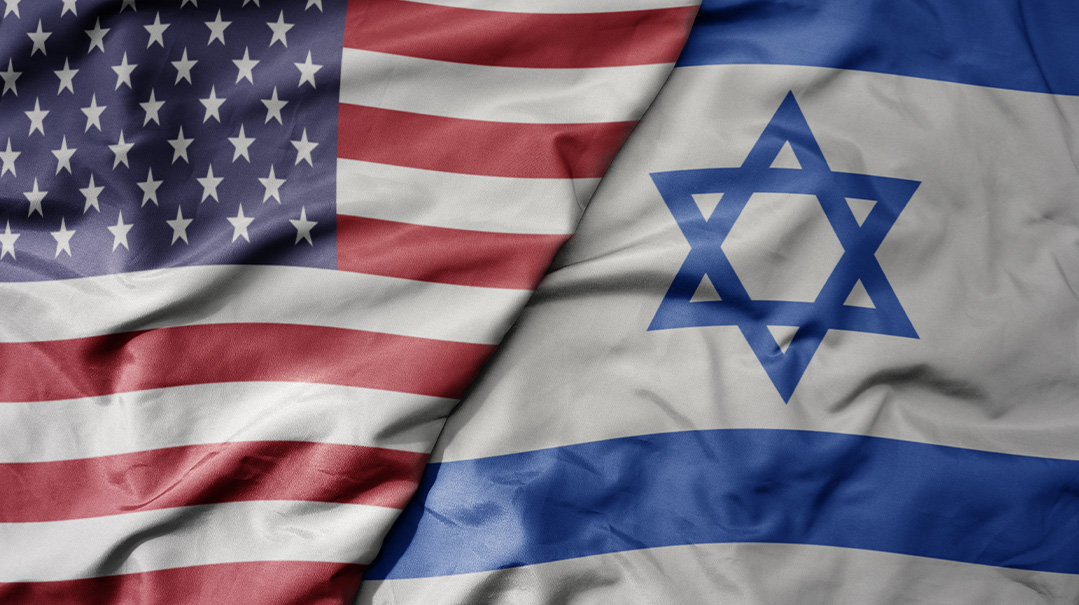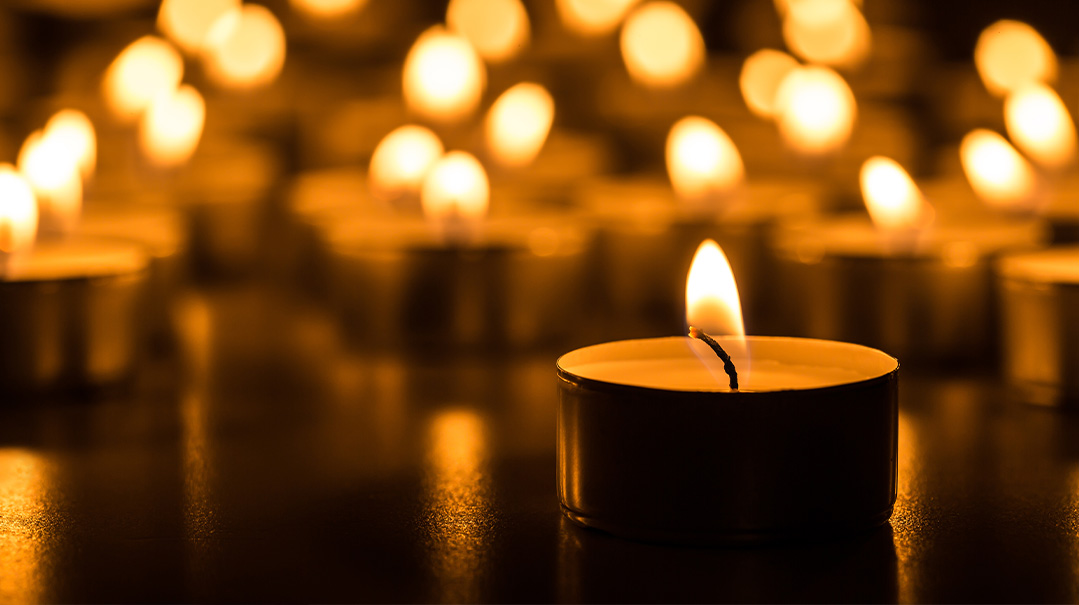An Oasis from Politics

Entering the world of the scientists, if but briefly, was a haven from insanity
Iknew from the start that I would enjoy writing about the MITZVA Cohort, featured elsewhere in these pages. If I have one recurrent message, it is the need to maintain a kiddush Hashem consciousness. The project’s initiators — a group of yeshivah guys from Brooklyn who were pre-med students together at Brooklyn College and have gone on to distinguished careers at clinicians and researchers — quite self-consciously set out to create a kiddush Hashem, and thereby counter the negative publicity directed at the Torah community during the COVID-19 pandemic.
And they did so not by looking for public relations gimmicks, but by figuring out a way to marshal the strengths of the Torah community to make a significant contribution to scientific research on COVID-19.
What I did not anticipate, however, was how much I would enjoy interviewing the prominent scientists whose research benefited from the MITZVA Cohort. Speaking to them, I felt like I had entered an oasis from the obsession with politics and ideology that characterizes so much of contemporary American intellectual life. No chanting “Trump — yeah” or “Trump — boo.”
The human immune system itself is a fascinating topic, and its complexity a wonderful portal to the niflaos haBorei. All of the scientific researchers to whom I spoke were eager to make their research as accessible as possible to a one-time dropout from high school AP Biology because he could never see anything under a microscope.
That eagerness reflected their passion for their work. The professors’ positive energy stands in stark contrast to so much of the angry, humorless campus life today, in which so many exist in a perpetual state of outrage. The only thing that excites contemporary social justice warriors (SJW) is angrily denouncing others and searching out violators of the regnant ideology to destroy. The chance that the denunciation campaigns to enforce proper groupthink will ever benefit those “oppressed groups” on whose behalf they are supposedly waged is remote. The campaigns are designed less to make a concrete difference in the lives of others than to buttress the SJWs’ feelings of their own virtue.
An interest in science likely starts with curiosity, itself a positive trait. But each of the scientists with whom I spoke — albeit all engaged in medical-related research and not astrophysics — had a clear idea of the potential implications of their work on combating COVID-19 and beyond. They are self-consciously devoted to “saving the world” in concrete, identifiable ways.
I asked Professor Aristo Vojdani — a 76-year-old Iranian Jew, who, in addition to his professorship at UCLA, also has his own bio-tech company — whether he envisioned any commercial possibilities from his current research on COVID-19 and auto-immune reactivity. He replied that he expects his current research to cost him far more than any possible commercial return.
“At my age, one wants to give back,” he added. Indeed, he told me that one of the things that made him eager to join forces with the MITZVA Cohort was its name.
That desire to better the world fosters a spirit of collegiality in science. Undoubtedly, there is competition in science as well, and a natural desire to be the first to solve a particular riddle. But there is also a great deal of teamwork involved, and that has been particularly true since the onset of the current pandemic.
Scientific research typically builds on the findings and discoveries of others. Over the last year, research labs all over the world have been repurposed for COVID-19 research, and there has been an outpouring of publications sharing their findings. In the midst of a conversation with Dr. Jonathan (Nechemia) Silverberg, the “number cruncher” on the MITZVA Cohort team, he blurted out, “I love research.” With over 400 peer-reviewed publications to his name by his early forties, Silverberg’s enthusiasm is clear.
But what particularly excites him about the MITZVA Cohort is that it has brought together leading scientists from different areas of research in a truly interdisciplinary effort to understand COVID-19 and how to protect against it. The possibility of sharing different parts of the puzzle with other talented scientists in pursuit of a common goal moves him.
The scientists with whom I spoke were all heads of research labs. Those labs each have teams of many members working together. My guess is that discussion of politics is largely absent from those labs, as such discussion would only distract from the common goal. And I’m pretty sure that membership is not limited to members of a particular political party or subscribers to critical racial theory, as is increasingly the norm for everything from academic appointments to friendships in America. For politics have nothing to do with one’s suitability for contributing toward reaching the goal of the lab. (Admittedly, STEM programs across the country have succumbed to the goal of racial “equity” in the allocation of graduate fellowships and the like.)
Finally, science has standards of evidence. There are safeguards against findings being reduced to subjective narratives, to which each person is entitled. True, “fake data” is far more common than we might think, and replication of results often proves elusive. But in the end, most fraud is exposed, and conclusions are almost sure to be examined and put to the test by others.
One of the things I found most impressive in my discussions with the research scientists is the degree to which they accept criticism of their findings as part of the process, not something that requires invective in response. Thus, when I mentioned to Dr. Michael Joyner of the Mayo Clinic, who supervised the use of blood plasma from recovered COVID-19 patients under the FDA’s early access program, that recent studies seem to have undercut the efficacy of blood plasma, he patiently went through some of those findings with me and explained why he did not find them conclusive.
A few days later, I received (not from Dr. Joyner) a pre-print of an article tracing the usage of blood plasma from those who had recovered from COVID-19 in US hospitals against the fatality rate of those admitted to hospital with COVID-19. The study showed a correlation between declining rates of plasma usage, likely in response to those studies questioning its efficacy, and a clear increase in fatality rates. According to the authors, “if there is a causal link between these two trends,” then the decline in per capita convalescent plasma use may have resulted in between 29,000 and 36,000 excess deaths.
LET ME BE CLEAR, the highly favorable impression I formed of these research scientists does not mean that I have joined the “just follow the science” camp. For one thing, those calls usually emanate from non-scientists. They not infrequently grossly overstate the degree of scientific consensus in favor of positions they advocate. And they are more than happy to ignore science when it does not suit their policy prescriptions — e.g., the high costs and inefficiency of such alternative energy sources as wind and solar.
Nor do I imagine that scientists are free of all human foibles or that they are uniquely able to resolve issues that are not ultimately scientific in nature. Epidemiology, for instance, might be able to contribute to understanding the implications of a particular policy — e.g., lockdowns or mask mandates — within very broad parameters. But it is not capable of weighing COVID-19 deaths — even in the impossible event that all outcomes could be known — against deaths from deferred or postponed medical tests, the impact of lost schooling, economic stress, greater alcohol consumption, etc. There are no scientific calipers for such a balancing.
What I gained, however, from my discussions with these scientists was a heightened awareness that there are millions of people involved in tasks great and small that fully absorb them and which contribute to the betterment of mankind. That contribution may be to the development of a new medicine or medical treatment, or the creation of a longer-lasting battery or one capable of storing energy for recovery as needed.
And because they are fully absorbed in contributing to humanity in some concrete fashion, politics do not take up their every waking moment or become the standard by which they judge everyone. As I once observed, one measure of the health and future of a society is its ratio of engineers to lawyers. The former will be judged by whether their inventions work for the benefit of all; the latter by their skill in fashioning evidence into narratives for their particular client.
Entering the world of the scientists, if but briefly, was a haven from insanity.
Originally featured in Mishpacha, Issue 857. Yonoson Rosenblum may be contacted directly at rosenblum@mishpacha.com
Oops! We could not locate your form.






